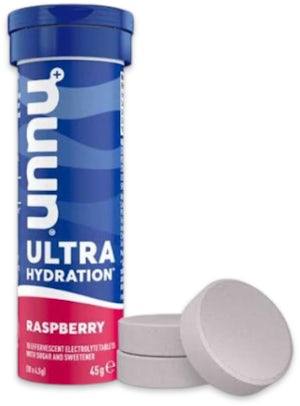Sodium
Sodium is a vital electrolyte that regulates fluid balance, nerve function, and muscle contractions in the human body. It plays a central role in maintaining blood pressure and facilitating nutrient transport across cell membranes. Recent studies highlight its complex interactions with the immune system and endothelial function, with excess intake linked to hypertension, cardiovascular risks, and tissue sodium storage in skin and muscle. While essential for health, most people consume far more sodium than needed, primarily through processed foods, prompting public health initiatives to reduce intake.
Key Facts
- Sodium helps maintain fluid balance and supports nerve/muscle function through electrical signalling.
- The UK recommends limiting intake to 1.5–2.3 grams daily, though average consumption often exceeds this.
- Top dietary sources include bread, pizza, cured meats, and soups, which contribute over 50% of daily intake.
- Chronic excess sodium is linked to hypertension, kidney strain, and increased cardiovascular risks.
- Deficiency is rare but can cause nausea, dizziness, and muscle cramps, typically from prolonged fluid loss.
- Emerging research suggests tissue sodium storage may influence immune responses and metabolic health.
What does the research say about sodium and its function in the body?
Sodium is crucial for regulating blood volume, transmitting nerve impulses, and balancing fluids. Recent studies reveal it’s stored in tissues like skin and muscle, potentially affecting immune function and vascular health. However, excessive intake disrupts these systems, elevating hypertension and cardiovascular risks.
What are the primary food sources of sodium?
Processed and restaurant foods dominate sodium intake. Major contributors include breads, pizza, cold cuts, soups, and savoury snacks. Even seemingly mild options like cheese or poultry often contain added sodium.
How can I supplement sodium?
Most people don’t need supplements, as diets typically exceed requirements. Athletes or those with specific medical conditions might use electrolyte tablets or drinks, but consult a healthcare provider first.
What are the main symptoms of sodium deficiency?
Hyponatremia (low sodium) causes nausea, dizziness, muscle cramps, and confusion. Severe cases may lead to seizures or coma, often triggered by extreme fluid loss or hormonal imbalances.
Are there any known side effects of supplementing sodium?
Excess supplementation risks hypertension, kidney damage, and fluid retention. Those with heart disease, kidney issues, or high blood pressure should avoid extra sodium unless medically advised.
How long does it take to see the benefits of sodium supplementation?
Benefits (like resolving deficiency symptoms) appear within hours for acute cases. However, unnecessary supplementation can harm health long-term, emphasizing the need for professional guidance.
What should consumers look for on the supplement label when supplementing sodium?
Check for sodium content per serving and avoid products with added sugars or artificial additives. Opt for third-party tested brands to ensure purity, especially if using electrolyte replacements.
How does sodium intake affect blood pressure?
High sodium intake increases blood volume, raising blood pressure and straining the cardiovascular system. Reducing intake can lower hypertension risk, particularly in salt-sensitive individuals.
What’s the difference between sodium and salt?
Salt (sodium chloride) is 40% sodium and 60% chloride. While sodium is an essential mineral, table salt is a common dietary source, with 5 grams of salt containing roughly 2 grams of sodium.
Can athletes safely consume more sodium?
Athletes losing sodium through sweat may need slightly higher intake via electrolyte drinks. However, most still meet needs through diet, and excessive supplementation isn’t advised without medical input.
Sources



